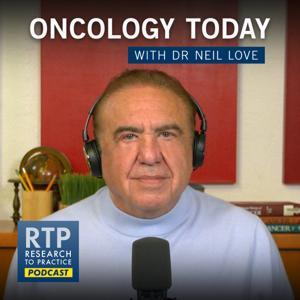Welcome to OncLive On Air®! I’m your host today, Courtney Flaherty.
OncLive On Air is a podcast from OncLive®, which provides oncology professionals with the resources and information they need to provide the best patient care. In both digital and print formats, OncLive covers every angle of oncology practice, from new technology to treatment advances to important regulatory decisions.
In today’s episode, Philippos Costa, MD, and Hari Deshpande, MD sat down to discuss and answer frequently asked questions about chondrosarcoma in honor of International Chondrosarcoma Awareness Day. This included common pitfalls in the diagnostic process for this rare, heterogenous bone malignancy; the central role of surgery as the primary treatment for localized chondrosarcoma; and the potential application of IDH1-targeted therapy, DR5 agonists, and other emerging targeted therapies in this sarcoma subtype.
Dr Deshpande is an associate professor of medicine, clinical research team leader in sarcoma, and the director of Medical Oncology Inpatient Consult Service in the Section of Medical Oncology at Yale School of Medicine. Dr Costa is an oncologist and assistant professor of medicine (Medical Oncology and Hematology) at Yale School of Medicine.
_____
That’s all we have for today! Thank you for listening to this episode of OncLive On Air. Check back throughout the week for exclusive interviews with leading experts in the oncology field.
For more updates in oncology, be sure to visit www.OncLive.com and sign up for our e-newsletters.
OncLive is also on social media. On X and BlueSky, follow us at @OncLive. On Facebook, like us at OncLive, and follow our OncLive page on LinkedIn.
If you liked today’s episode of OncLive On Air, please consider subscribing to our podcast on Apple Podcasts, Spotify, and many of your other favorite podcast platforms,* so you get a notification every time a new episode is posted. While you are there, please take a moment to rate us!
Thanks again for listening to OncLive On Air.
*OncLive On Air is available on: Apple Podcasts, Spotify, CastBox, Podcast Addict, Podchaser, RadioPublic, and TuneIn.
This content is a production of OncLive. The current episode was filmed in advance of Chondrosarcoma Day, observed on February 6, 2026




































